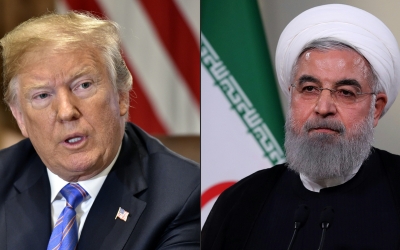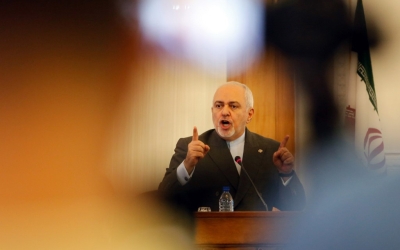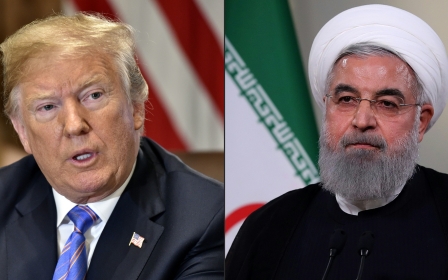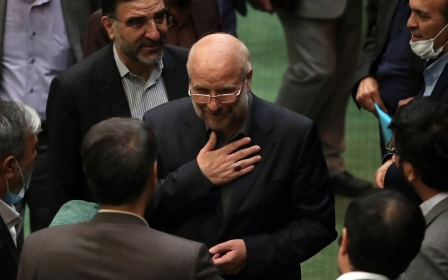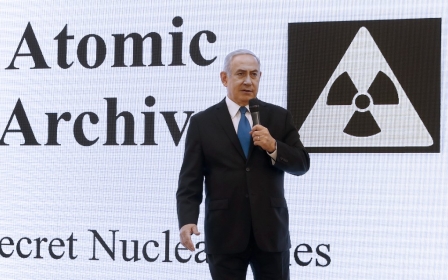UN nuclear watchdog calls on Iran to open suspected sites to inspectors

The UN's nuclear watchdog has called on Iran to open two of its nuclear sites to international inspectors as they could still be hosting undeclared nuclear material or traces of it.
The 35-member Board of Governors for the International Atomic Energy Agency (IAEA) passed a resolution, the first of its kind since 2012, on Friday after two reports from the agency said that the sites could still contain trace amounts of nuclear material.
The two sites in question do not relate to the passage of the nuclear agreement in 2015, but trace back to Iran's alleged activities in the early 2000s.
The resolution, which was submitted to the board by France, Germany, and Britain and was opposed by China and Russia, "calls on Iran to fully cooperate with the Agency and satisfy the Agency's requests without any further delay, including by providing prompt access to the locations specified by the Agency".
Iran has slammed the resolution, with its foreign ministry saying the country has complied with the international watchdog.
"While Iran has the highest level of cooperation with the IAEA, the issuance of a resolution by the Board of Governors is a completely unconstructive and [a] disappointing step," Abbas Mousavi, a ministry spokesman, said in a statement.
Russia's ambassador to the UN in Vienna, Mikhail Ulyanov, tweeted that "the resolution can be counterproductive," while also "stressing the need for Tehran and IAEA to settle this problem without delay."
On Thursday, Kazem Gharibabadi, Iran's ambassador to IAEA, said the resolution was based on false allegations from Israel, after the country pressed the IAEA to investigate what it had said was a secret atomic warehouse.
The Islamic Republic also said the investigation into the possibility of any nuclear activity prior to 2015, which is based on the capture of Iranian documents by Isreal, is beyond the scope of the international agreement.
'No exceptions'
IAEA chief Rafael Grossi told reporters on Friday that "there are no exceptions" to inspections and Iran needs to open up the sites for the agency.
Tehran earlier this week had said the resolution would be counterproductive, and said that it is based on allegations from Israel, after the country pressed the IAEA to investigate what it had said was a secret atomic warehouse.
The Islamic Republic said the investigation into the possibility of any nuclear activity prior to 2015, which is based on the capture of Iranian documents by Isreal, is beyond the scope of the international agreement.
IAEA chief Rafael Grossi told reporters on Friday that "there are no exceptions" to inspections and Iran needs to open up the sites for the agency.
"I think the pronouncement has been clear," Grossi said. "I intend to sit down with Iran very soon and to try to solve this as soon as possible."
The action to push Iran to open up the sites for inspection signals a potential row among the international coalition to save the Iran nuclear deal, which the Trump administration in the US walked away from in 2018.
Iran had accepted IAEA inspections and a curb on its nuclear programme in exchange for lifting UN sanctions, yet since the US left the deal Tehran has began to undo some of the restrictions placed on it, such as the size of its uranium stockpile.
The dispute at the IAEA comes at the same time Washington has been threatening to revive UN sanctions on Iran if the Security Council does not extend its arms embargo on Tehran.
Still, Britain, Germany, and France have said in a statement that they do not support any "unilateral attempt" to reimpose international sanctions on the Islamic Republic, for this would scupper any chances to save the Iran nuclear deal.
Middle East Eye delivers independent and unrivalled coverage and analysis of the Middle East, North Africa and beyond. To learn more about republishing this content and the associated fees, please fill out this form. More about MEE can be found here.


